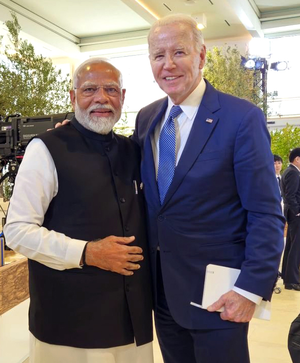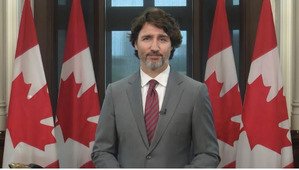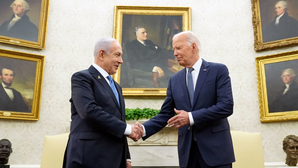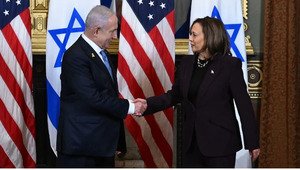Author: Reuters, AFPThu, 2017-03-16ID: 1489673793672681200
BEIJING: Saudi Arabia’s King Salman oversaw the signing of deals worth potentially $65 billion on the first day of a visit to Beijing on Thursday, as the world’s largest oil exporter looks to cement ties with the world’s second-largest economy.
The monarch, who has overseen the launch of an ambitious economic reform plan since his accession two years ago, is on a month-long Asian tour.
King Salman arrived in China Wednesday with a reported entourage of around 1,000 people, following stops in Japan, Malaysia and Indonesia.
The visits, to countries that include some of world’s fastest-growing importers of Saudi oil, aim to promote investment opportunities in the Kingdom, including the sale of a stake in its giant state firm Saudi Aramco.
Saudi Arabia has sought to boost oil sales to China, the world’s second-largest oil market, after losing market share to Russia last year, by working mostly with China’s top three state oil firms.
In Beijing’s cavernous Great Hall of the People, President Xi Jinping told King Salman that China was a reliable and stable oil export market and the two countries should deepen cooperation.
“For a long time, China and Islamic countries have respected each other and had win-win cooperation, and have created a model of the peaceful coexistence of different cultures,” Xi said, according to China’s Foreign Ministry.
King Salman told Xi he hoped China could play an even greater role in Middle East affairs, the ministry added.
“Saudi Arabia is willing to work hard with China to promote global and regional peace, security and prosperity,” King Salman said.
‘Old friends’
Deputy Chinese Foreign Minister Zhang Ming said the memorandums of understanding and letters of intent were potentially worth about $65 billion, involving everything from energy to space.
“President Xi Jinping and King Salman are old friends,” Zhang said. “Practical cooperation between China and Saudi Arabia has already made major achievements, and has huge potential.”
Few other details were given about the 14 memoranda of understanding that were signed at the Great Hall of the People.
Besides the MOUs agreed between the two governments, Saudi and Chinese companies signed 21 deals, ranging from exploring investments in oil and petrochemical plants to ecommerce and co-operating in renewable energy markets.
For Saudi Aramco, the potential investments fit with its strategy to expand its refining and chemicals portfolio in its bid to diversify assets and secure long-term agreements for its oil.
An MoU with state-run Norinco will look into building refining and chemical projects in China, while Saudi Basic Industries Corp (SABIC) and Sinopec have agreed to develop petrochemical projects in China and Saudi Arabia.
The Norinco deal could involve exploring the possibility of a greenfield refinery and chemical plant in Panjin, Liaoning province, while also upgrading an existing refinery and petrochemical facility in the same location, an industry source said.
Sinopec and SABIC, one of the world’s largest petrochemical companies, jointly run a refinery in Tinajin.
‘Honest broker’
China has traditionally played little role in Middle East conflicts or diplomacy, despite its reliance on the region for oil. But it has been trying to get more involved in efforts to end Syria’s six-year-old civil war, where Riyadh supports rebels battling President Bashar Assad.
Last year China also offered support for Yemen’s government, which is backed by a Saudi-led Gulf Arab coalition in a war against the Iranian-aligned Houthi movement that controls much of the country.
Zhang said both the Yemen and Syria crises were discussed by King Salman and Xi, and both leaders agreed that these issues must be resolved politically via talks.
China has had to tread a careful line, though, as it also has close relations with Iran. Xi visited both Saudi Arabia and Iran in January last year. Next week Israeli Prime Minister Benjamin Netanyahu visits China.
One Beijing-based diplomat from a Muslim-majority country told Reuters that China was trying to play the role of “honest broker” in the Middle East, as it lacks the historical baggage of the Americans or the Europeans.
“China does not take sides and that is appreciated,” said the diplomat, speaking on condition of anonymity.
In an interview with Chinese state news agency Xinhua, Saudi ambassador Turki Bin Mohammed Al-Mady emphasized his country’s potential role in China’s “One Belt, One Road” initiative.
That policy is a strategy to increase trade links and market connectivity between China, Europe and regions in between, based loosely on the ancient “Silk Road” trading route.
“In terms of strategic location, Saudi Arabia serves as the central hub connecting three continents — Asia, Africa and Europe — and has been an important part of the initiative,” Al-Mady said.
King Salman’s first visit to China since taking the throne in 2015 coincided with a visit to Washington by Deputy Crown Prince Mohammed bin Salman, second deputy premier and defense minister.
Joseph Kechichian, a senior fellow at Riyadh’s King Faisal Center for Research and Islamic Studies, said ties between Saudi Arabia and US had room to grow.
“Past (China-Saudi) ties were good, but at least from a Saudi perspective, can use a significant boost,” Kechichian said.
Main category: Saudi ArabiaTags: Saudi ArabiaKing Salman Asian TourChinatraderelated_nodes: Saudi Arabia, China seal 15 dealsAnalysis: China and Saudi Arabia: Reinvigorating tiesKing Salman’s visit to Beijing will boost relations: EnvoyChina says ready to help resolve Saudi-Iran disputes








